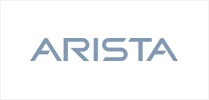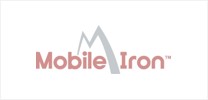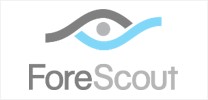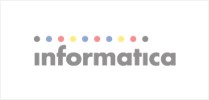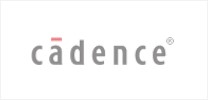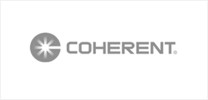Are piles of invoices giving you sleepless nights? As your SaaS company scales, manually managing your accounts payable (AP) quickly becomes impractical. Manual AP jeopardizes vendor relationships and contributes to cash flow problems. Luckily, cloud-based automation is a better way to tackle SaaS AP.
This blog will explore the benefits of embracing cloud accounting for SaaS AP. We’ll explore 1) The challenges involved in traditional AP and handling invoices manually, 2) Why cloud AP is superior to legacy systems, 3) How touchless invoicing simplifies payables, 4) The role SaaS CFOs play in AP automation and more.
If you’re ready to take your SaaS AP into the twenty-first century, this post is for you.
Understanding the need to automate AP
AP has a simple set of objectives for small and large companies. They involve getting vendors paid quickly and promoting efficiency around your AP workflows. This may seem clearcut on paper, but a lot more goes into AP than is immediately apparent.
Your payables team juggles a wide variety of daily tasks, such as:
- Invoice management and ledger updates
- Tracking cash flow as it relates to your payables
- Staying on the lookout for fraudulent activity
- Ensuring invoices follow the correct approval chain
That’s a lot to handle, and tackling it manually isn’t in your employees’ or vendors’ best interest. Manual invoice processing frequently leads to delays and errors, causing frustration for both suppliers and accounting teams.
And the larger your business grows, the riskier legacy AP becomes. As you scale, the likelihood of manual errors resulting in late payments, missed invoices, or even vendor service interruptions scales with you.
Let’s take a look at how manual AP compares to cloud-based payables.
Comparing legacy AP to cloud AP
Legacy AP systems heavily rely on manual, paper-based processes, leading to many errors and inefficiencies. Spreadsheet-based solutions like QuickBooks are a slight improvement, but only slight. Their products only move inefficient processes from paper to spreadsheets, but cloud AP offers true process automation.
Furthermore, legacy AP lacks cloud AP’s collaboration and reporting capabilities, which help companies streamline their invoice tracking and vendor management. Cloud AP also enhances security and compliance with features like template-based invoice processing and automated receipt management.
Since invoices are at the heart of AP, touchless invoicing is perhaps the most crucial reason SaaS CFOs should automate their payables. Let’s see what it can do for your department.
How does touchless invoicing simplify payables?
In a legacy accounting department, the AP process looks something like this. Your AP team receives a paper invoice, physically types the information into your system, ensures the proper approval chain is observed, and executes the payment once all approvals are obtained. On top of all that manual labor, someone must update your ledger.
Cloud-based touchless invoicing automates those processes while keeping your AP team in the driver’s seat to oversee everything. This multiplies your employees’ time and efficiency, freeing their focus for more strategically valuable work.
Among other benefits, cloud AP is helping SaaS companies:
- Automate invoice tracking and management: With legacy AP, Achieving total accuracy around managing your invoices is next to impossible. But accounting software equipped with AI can make it happen.
- Dramatically simplify approvals: Approval routing is a significant headache when you handle your payables manually. With automated approval chains, you set up your desired AP routing structure, and invoices are automatically routed until you get everyone’s signoff.
Now that you’ve gained more context on the differences between legacy and automated AP, let’s examine the main benefits of AP automation.
Key benefits of payables automation for SaaS CFOs
As a C-level finance leader with a lot on your plate, you must seek process efficiency wherever you can. AP and related internal payments like payroll are prime candidates for automation.
So, without further ado, what specific and concrete benefits can you expect when you automate your payables?
Total financial visibility
Accessing and managing payables has never been easier with cloud-based AP solutions. Say goodbye to being tied to your desk and hello to on-the-go convenience.
Remote access lets you track invoice status, due dates, payment history, and all your other payables and financial data from anywhere with an internet connection. Cloud accounting offers total financial visibility for finance leaders.
No more flipping through paper receipts or scrolling through spreadsheets searching for important data. Stay organized and efficient while quickly handling vendor inquiries and resolving payment issues.
And when it comes to audits and reporting, rest assured that your AP records are accurate, encrypted, and up-to-date, including backups.
Superior data tracking and time savings
Accounting AI software features role-based dashboards that allow SaaS CFOs to track their metrics in real-time. Cloud accounting software also comes equipped with role-based dashboards that allow SaaS CFOs access to by-the-second financial updates.
The modern CFO’s role- especially at SaaS companies- could almost be described as a “financial data scientist.” Your job depends on the ability to accurately, quickly, and effectively work with large volumes of data–cash inflows and outflows, SaaS metrics and KPIs, and your accounts payable.
Accounting AI can be your trusted partner in streamlining your financial data management. By letting it do what it does best–automate accounting processes and track financial data–you can save significant time for more valuable work.
Simplified collaboration and continuous process automation
Cloud AP lets you seamlessly collaborate with internal teams and external stakeholders by sharing invoice data, comments, and approval workflows on a centralized platform. With real-time reports on your payables and cash flow, you and your team can make informed AP decisions no matter what’s happening around you.
Continuous processes are another significant benefit of AP automation. Your GL and financial data is continuously updated from moment to moment as changes occur, greatly simplifying your reporting. But just as important when talking about AP is that accounting AI continuously closes your books with each transaction.
Continuous closing saves your department a tremendous amount of time over the year and streamlines one of the most tedious processes in SaaS accounting.
Enhanced security and compliance
Cloud accounting offers several key features to ensure enhanced security and compliance for SaaS companies and vendors alike.
First and foremost, your sensitive financial data is safeguarded, preventing unauthorized access. This is achieved by encrypting and securely storing invoices in the cloud, protecting them from potential breaches.
Additionally, cloud accounting solutions ensure compliance with industry regulations and data privacy laws, reducing your risk of legal issues and regulatory fines. And speaking of regulations, cloud accounting software can even help you automate ASC 606 management.
Automatic audit trails further enhance security. User activities are logged, providing an audit trail for accountability. Moreover, automation of approval workflows enforces standardized internal controls and dramatically reduces the risk of AP fraud.
How can AP bill automation revolutionize your department?
By embracing touchless invoicing and automating your payables, you can simplify and expedite every aspect of your AP management. Cloud accounting platforms offer visibility into and control over your payables, which isn’t possible with paper-based or spreadsheet-based AP.

